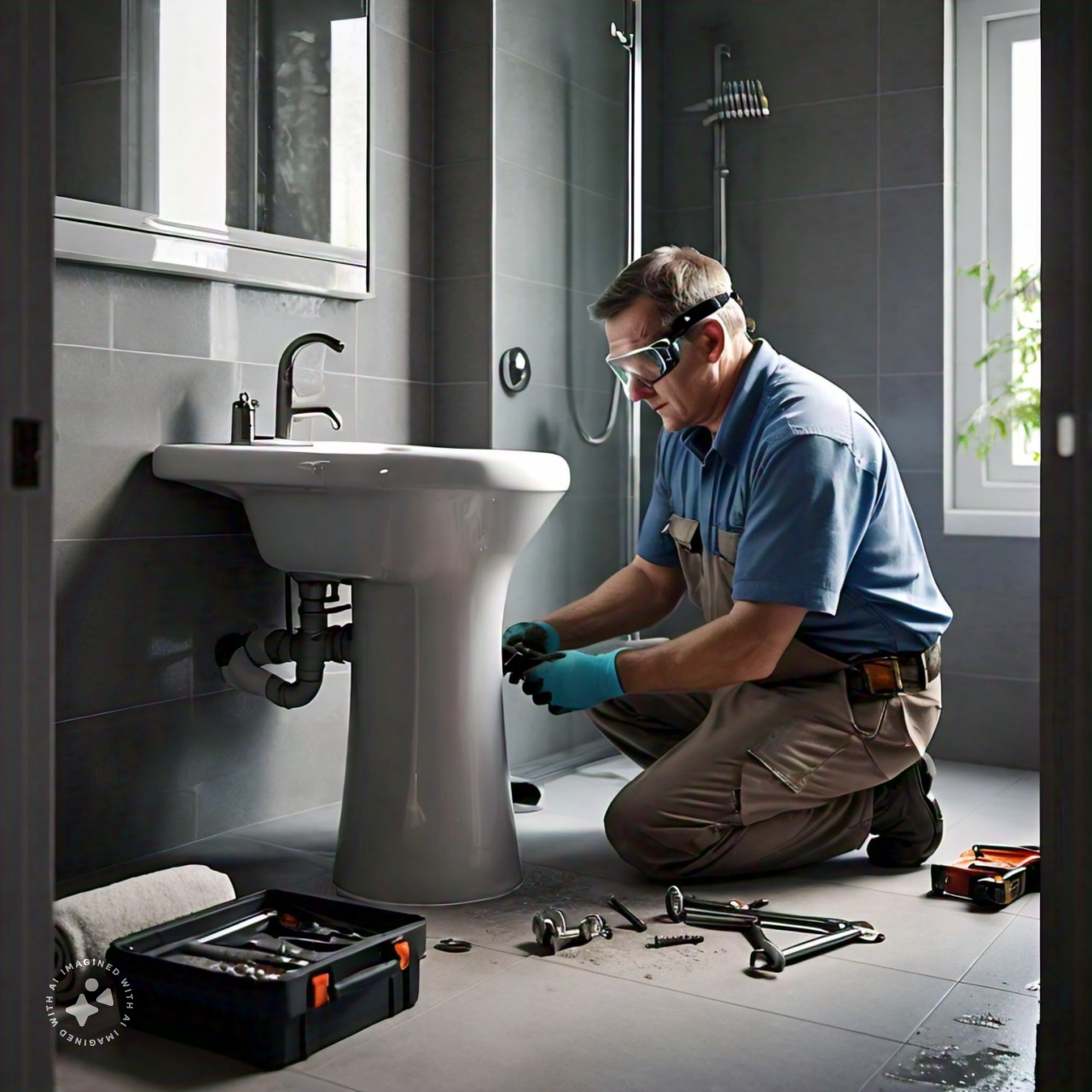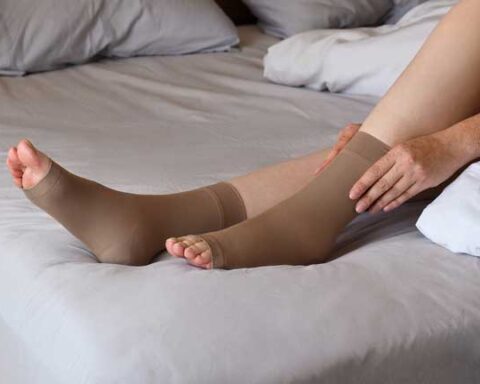Key Takeaways:
- Regular plumbing maintenance can prevent costly repairs.
- Understanding key maintenance tasks can prolong the life of your plumbing system.
- Professional inspections can uncover hidden issues before they become major problems.
Basic Plumbing Tools Every Homeowner Should Have
Having essential plumbing tools on hand can make all the difference in maintenance and minor repairs. These include a pipe wrench, plunger, basin wrench, plumber’s tape, and a drain snake. A pipe wrench is essential for gripping and turning pipes, while a plunger can quickly clear most blockages in sinks and toilets. A basin wrench is designed for those hard-to-reach nuts and bolts under sinks, and the plumber’s tape ensures a tight seal on threaded connections to prevent leaks. A drain snake can reach deep into pipes to clear stubborn clogs. Investing in these tools and familiarizing yourself with their use can save you from emergency plumbing calls and give you the confidence to handle minor issues yourself. With a well-equipped toolkit or the assistance of plumbers in Seguin, TX some know-how, you can tackle many of the common plumbing problems that arise in a household.
Preventative Maintenance Tasks
The secret to a healthy plumbing system is routine preventative maintenance. Examine any visible pipes first for wear, corrosion, or leaks. Larger troubles later on can be avoided by identifying and resolving these problems early on. Keep an eye out for any damp or discolored areas on the ceiling and walls, since these could be signs of concealed leaks. Another effective measure is using a drain catcher in sinks and showers to prevent hair and debris from clogging the pipes. Clean these catchers regularly to ensure they continue to trap debris without themselves becoming a source of blockage.
Another important task is flushing your water heater to remove sediment buildup at least once a year. This improves efficiency and extends the heater’s lifespan, ensuring a consistent hot water supply. Additionally, inspect your washing machine hoses and replace them if they show signs of cracking or bulging. Regularly checking the water pressure and ensuring it is optimal can also prevent strain on your plumbing system. If you follow these simple measures regularly, you can lower your chance of water damage and keep your plumbing system operating at peak performance. Putting these habits into practice can make your house more efficient and safer over time while also saving time and money.
Signs Your Plumbing Needs Attention
Unusual Sounds
If you hear gurgling, banging, or other unusual sounds from your pipes, it could indicate a problem. These noises often suggest trapped air or blockages in the plumbing system. Gurgling sounds are typically a sign of a blocked drain or vent pipe, which requires prompt attention to prevent a complete blockage. Banging noises, often called ‘water hammer’, can indicate loose pipes or issues with the pressure in your system. Addressing these sounds early can prevent more serious damage to your home’s plumbing.
Slow Drains
Slow-draining sinks, tubs, or showers often indicates a developing clog. Using a plunger or a drain snake can often resolve the issue, but persistent slow drains should be inspected more thoroughly. Buildups of soap scum, hair, grease, and other debris can accumulate over time, gradually narrowing the diameter of your pipes. Attempt to clear the drain with a plunger or drain snake, but if the problem persists, it’s best to call a professional to inspect further. Ignoring slow drains can lead to complete blockages that are more difficult and expensive to repair.
Water Discoloration
Discolored water can indicate rust in your pipes or issues with your water heater. If only the hot water is discolored, the issue is likely within the water heater, whereas if both cold and hot water are affected, it may be the pipes. Rusty water is unsightly and potentially harmful, so it’s important to address this issue promptly. Regularly flushing your water heater and replacing old, corroded pipes can prevent this problem from worsening. Brown or yellow water can also indicate breaks in the main water line, which requires immediate attention from your local utility company or a qualified plumber.
Low Water Pressure
Low water pressure may indicate blockages in the plumbing system or leaks. It can be caused by a buildup of mineral deposits in the aerators of faucets and showerheads. Removing these aerators and cleaning them can often restore normal pressure. Check faucet aerators for mineral buildup, and consider having a professional inspect for more serious problems. Leaks behind walls or under the foundation can also reduce pressure; a professional plumber should address these issues immediately to prevent further damage. Consistently low water pressure can also indicate problems with your main water line, which requires professional assessment and repair.
Benefits of Hiring Professional Plumbers
While homeowners can handle many plumbing tasks, there are times when professional help is essential. Complex issues such as sewer line problems, extensive pipe repairs, and water heater malfunctions require specialized knowledge and equipment that most homeowners still need to get. Professional plumbers are trained to diagnose and address these problems efficiently, ensuring the job is done correctly and safely. Attempting these repairs alone can often lead to more damage and higher costs in the long run. Hiring a professional ensures that repairs are up to code and that your plumbing system remains in top condition.
Additionally, hiring professionals for regular inspections can uncover hidden issues before they become major problems. A professional inspection can reveal leaks, weak pipes, and other potential hazards, saving you money in the long run by preventing costly repairs. Experts can provide the expertise needed to maintain a healthy plumbing system. With the use of cutting-edge equipment and technology, plumbers can identify problems that are hidden from the untrained eye. Regular professional inspections can increase your plumbing system’s longevity, enhance the water’s quality, and guarantee that every part is operating at peak performance.
Cost-Saving Tips and Best Practices
One of the greatest strategies to reduce plumbing expenses is to practice routine maintenance. This covers everything, from checking for leaks in pipes and faucets to ensuring water heaters and washing machines are operating well. Frequent maintenance can save small problems from growing into bigger, more expensive ones. For instance, replacing a worn-out washer in a leaking faucet can prevent the need for a complete replacement. Simple acts like promptly fixing minor leaks can save considerable amounts on utility bills and prevent extensive water damage.
Another cost-saving tip is to address clogs promptly. Preventive measures, such as drain catchers and regular flushing of drains with baking soda and vinegar, can help keep your plumbing system clear and functioning properly. Also, insulating your pipes can prevent them from freezing in colder climates, leading to burst pipes and expensive repairs. Lowering energy costs can also be achieved by insulating your hot water pipes and water heater to improve energy efficiency. By being proactive and knowledgeable, you can efficiently and affordably maintain the plumbing system in your house.
Ensuring proper disposal of waste products that might clog the system—such as grease, coffee grounds, and non-flushable wipes—can prevent many common issues. Regularly checking for signs of leaks and corrosion and addressing minor problems before they worsen can save significant amounts in the long-term. Staying educated on plumbing basics and regularly consulting authoritative resources can empower homeowners to handle many maintenance tasks, reducing the need for professional intervention.
Regular plumbing maintenance is crucial for preventing costly repairs and ensuring the longevity of your home’s plumbing system. You can keep your plumbing in top condition by equipping yourself with essential tools and knowledge, performing routine maintenance tasks, and knowing when to call in professionals. Gaining a better understanding of your plumbing system can also enable you to detect issues early on, further minimizing repair costs and inconvenience. For more detailed advice and practical maintenance tips, visiting reputable online resources such as
Family Handyman can be incredibly beneficial. Staying proactive and informed will help you maintain a healthy, efficient plumbing system and avoid unexpected expenses. Remember, the small cost of regular maintenance is always less than the expense of major repairs and the peace of mind knowing your home is protected is invaluable.
Stay in touch to get more updates & news on Essentialtribune!








